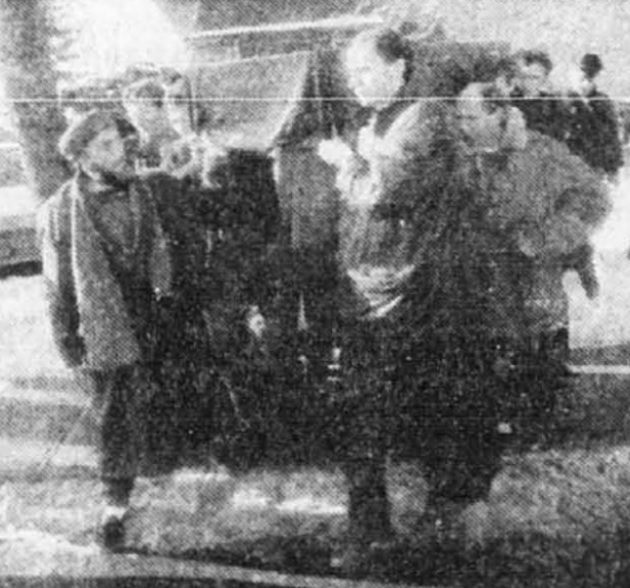Montréal, Québec / December 2, 1995
|
Nizafed Deljanin, a Bosnian civil engineer, came to Canada with his wife and daughter in 1991. After five years on welfare he managed to save the $1,000 he needed to go to taxi driver school and get his license. He hoped to use his earnings to take courses toward accreditation as an engineer in Québec, and also to help bring other members of his family to Canada. December 2, 1995 was his eighth night as a taxi driver in Diamond Taxi 92. He was last seen about 8:30 p.m., about an hour and a half into his shift, when he picked up a fellow driver who was having car trouble. At about 10 p.m. a passerby found Mr. Deljanin's cab idling on Basswood Street in suburban Pierrefonds at the edge of Bois de Liesse regional park. Mr. Deljanin had been shot three to six times in the chest. There was $18 on the meter. The killer was a 19-year-old man. He had flagged Mr. Deljanin down and directed him to Pierrefonds where he intended to visit his fifteen-year-old girlfriend, the mother of his infant daughter, despite a court order banning him from the area. On their arrival the killer told Mr. Deljanin that he did not have money for the fare, and when Mr. Deljanin mentioned "something about the police" the killer shot him. Although the killer claimed the shooting was accidental, eleven entry and exit wounds were found in Mr. Deljanin's body, along with defensive wounds on his hands and powder burns indicating that the shots had been fired at close range. The killer robbed Mr. Deljanin of about $50 and then fled to his girlfriend's apartment. He gave her the stolen money and persuaded her to hide the gun and his bloody shirt. Later the same evening the girl and her mother passed by Mr. Deljanin's cab which police were still examining. The girl's reaction caused her mother to question her and the story of the killer's visit came out. The mother phoned the police and provided them with the killer's name and description as well as the gun and discarded shirt. He was tracked down and arrested in a Hamilton bar. At the trial Mr. Deljanin's widow told the judge that her 4 1/2 year old son had refused to accept the death of his father, and that her eight year old daughter was so shaken that she had to repeat her school year. Mr. Deljanin's mother had fallen into a severe depression and lost her will to live. The killer, who had previous convictions in 1994 for assault and assault causing bodily harm, was convicted of second degree murder and sentenced to life with no possibility of parole for thirteen years. Mr. Deljanin's murder became a flashpoint in the ongoing dispute between an association of "renter drivers" and taxi owners over the installation of shields in Montréal taxis, and between the assocition and the provincial government over recognition of the association as a union. |

Mourners carry Nizafed Deljanin's coffin to a waiting hearse. (Source: La Presse, December 8, 1995, p. A3 via Bibliothèque et Archives nationales du Québec.) André Sylvestre, a member of the association, said that the owners would not even agree to install alarm buttons that would call 911 in an emergency instead of the existing "Code 13" signal put in place to alert dispatchers. "I was attacked a year and a half ago, said Fari Catou, another driver. I gave the Code 13 signal but the dispatcher dealt with all the incoming customer calls before responding to me." In support of the driver association, the Metallos (United Steelworkers Union) launched an intense campaign to have drivers sign union cards, but the effort had been stalled pending a decision by the Québec Supreme Court. The parallel disputes boiled over at Mr. Deljanin's funeral, where André Sylvestre and another driver confronted Jean-Claude Fonrose, secretary of Taxi League A-5 over the installation of shields. Mr. Fonrose claimed the League favoured shields but individual owners opposed them. He denounced the two drivers for using Mr. Deljanin's funeral to promote the unionization campaign. Police officers at the funeral "discretely intervened" to calm the disputants down, but the discussions continued among other drivers. One owner-driver told of installing a shield after being attacked by three men. "Since then, I don't work at night.... Because of the attack, I'm constantly fearful. When I pick up a customer in the street I keep my shield raised." |

 • Driver Profiles
• Driver Profiles